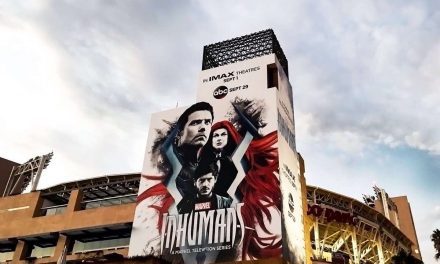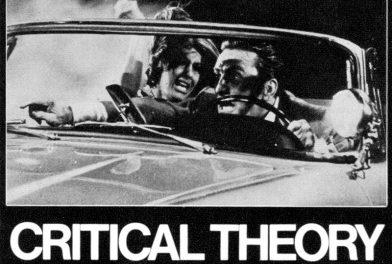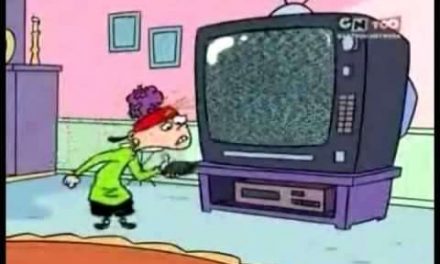ABC’s Nashville (2012) and NBC’s Smash (2012-13) are two new US serial dramas that have caught my attention over the past year primarily because of the innovative integral role that music and theatrical performance play in both series. Nashville and Smash are set in two very different dramatic contexts: in the case of Nashville, a fictionalised representation of the city’s country music scene and of the complex lives and relationships of its stars and up and coming artists, and in Smash, the highly competitive backstage world of New York musical theatre following the casting and staging of a new Broadway musical Bombshell (based on the life of Marilyn Monroe). Yet they also share much common ground with their knowing foregrounding of the construction of performance and image, and their focus on the professional worlds of singers, dancers, actors, directors and producers. Both series embrace the dazzle, glamour and glitter of showbusiness whilst simultaneously exploring the intense pressures, insecurities and challenges performers face at every level, whether trying to sustain a successful career and stay at the top, or struggling simply to establish a foothold somewhere in the entertainment business.


Additionally, both series demonstrate an innovative genre hybridity – television musical drama – which synthesises the domestic intrigues, romantic entanglements and compelling hooks and cliffhangers of weekly serial drama with musical performances. For Nashville this means country music sung in venues from small intimate local clubs such as the studio recreation of Nashville’s famous Bluebird Café (the setting for some of the key storylines in the series), to sold-out stadium concerts and arena tours.

Smash in contrast presents every aspect of the development of a Broadway hit musical, from the first tentative attempts of composer and lyricist trying out their new songs at home on the piano, to nerve-wracking audition scenes and ongoing rehearsals, to the fully-fledged stage production numbers.

Nashville was created by Thelma and Louise writer Callie Khouri, who herself lived in the city in the late 1970s. Khouri’s husband, award‑winning country music star and producer T- Bone Burnett, was responsible for the selection and production of the music in the series, his own connections with and success in the country music business making clear the centrality and significance of country music to the series. In a New York Times interview with Joe Rhodes in October 2012 Khouri talked about the series’ connection with Robert Altman’s 1975 film Nashville which followed the lives of a group of people connected with the country music industry. She considered whether her series could be seen in any way as a contemporary response to this. Khouri said of film’s influence that it was “where Nashville was a main character, where the music industry and the politics of the moment were intertwined. And that idea was very interesting and exciting to us.”
Nashville’s story line revolves around the contrasting yet interlocked careers of fortysomething mother of two country music star Rayna Jaymes (Connie Britton) and ambitious up and coming young singer Juliette Barnes (Hayden Panettiere). After some twenty years of musical stardom, Rayna finds her position is challenged by fresh young talent like Juliette. Rayna’s life is further complicated by the ongoing intrigues of her rich and well-connected political family headed by scheming patriarch Lamar (Powers Booth) intent on Rayna’s husband Teddy (Eric Close) becoming mayor of Nashville. In the background lurks Deacon Claybourne (Charles Easton), Rayna’s guitarist, former love interest and recovering addict. Meanwhile headstrong, impulsive Juliette has trouble dealing with the legacy left by her impoverished childhood and relationship with her drug addict mother. Situated in the wider world of the Nashville music scene are the narratives surrounding a range of talented young musicians writing, playing, performing, succeeding and failing and of course falling in and out of love.




What is most interesting about Nashville is that alongside the pleasures of the glossy serial drama which it offers the viewers (and with its glamorous, stylishly dressed and well groomed leading ladies, ruggedly handsome male co-stars and metropolitan power struggles all shot against the iconic cityscape of Nashville the high end super soaps like Dynasty and Dallas do come to mind), the music never feels secondary or added on. Rather it drives and focuses the drama. The music is what it is all about. Rayna and Juliette’s contrasting star power and professional concerns are always embodied in their performances, Rayna providing captivated audiences with the tunes that have sound tracked their lives against Juliette’s high energy, poppier, crossover performances now pulling in a new generation of young fans. Both are uneasy and anxious about the other’s abilities. If Rayna is only too aware of Juliette’s obvious youth and marketability, Juliette secretly envies Rayna’s credibility and status within the industry. Yet when we watch Rayna and Juliette sing a hastily-written joint composition at a big awards ceremony we experience their complementary talents, witness an older and younger woman tacitly acknowledging that they can work together and have more in common than they might openly admit to. The unfinished nature of their relationship and unspoken chemistry that Rayna and Deacon share is writ large in every performance that brings them together. The young singers and songwriters who perform at the Bluebird Café document their own personal and professional narratives in song and performance.
Such is the compelling, well-crafted nature of the fictive world of the Nashville music community that the series creates (reflected in the songs and performances), that the stories concerning political struggles and business deals seem sometimes almost superfluous, an attempt perhaps to offer tried and tested tropes of the serial drama in the event that the music isn’t enough. With a second series commissioned it will be interesting to see the extent to which this outside world features in ongoing storylines.

Smash, unlike Nashville, does not situate its drama within any context other than the theatre, the rehearsal room and the places and spaces of the cast’s working and private lives. It is an almost hermetically-sealed environment in which everyone seems to know everyone else. Based on an initial idea of director Steven Spielberg the project was developed by NBC entertainment president Robin Greenblatt. It was created by Theresa Rebeck who wrote the first series. (Smash ran for two series between 2012 and 2013). It concerns the development and staging of writing team Julia Huston and Tom Levitt’s (Debra Messing and Christian Borle) new Marilyn Monroe-inspired musical Bombshellproduced by industry veteran Eileen Rand (Angelica Huston) and directed by temperamental perfectionist Derek Wills (Jack Davenport). In series one the focus is on the competition on stage and off for the role of Marilyn between seasoned performer Ivy Lynn (Megan Hilty) and newcomer Karen Cartwright (Katherine McPhee), as well as the ongoing battles waged between producer, writers director and actors all working to pull the production together. (As series two is not yet available to view in the UK this blog looks only at series one).
Smash, perhaps even more so than Nashville, is explicitly about theatrical artifice and the ‘performance of the performance’. Unlike the latter it does not use any of the anchoring ‘normalising’ storylines around, for example, political or business deals (unless directly connected to the show under production) or wider New York politics to locate the musical side of the equation more firmly with established conventions of serial drama. Smash’ s core lies in the world of musical theatre and in creating a world in which ‘putting the show on’ despite the odds and beating your rival to the part at all costs is the prime source of all the series drama and tension. Further layers of theatrical connectivity are developed in the series by the mix of real-life musical theatre performers who play leading characters and the introduction of famous musical performers as guest stars playing equally celebrated fictionalised versions of them. Audiences watch performers whom they may well know from their established real life musical theatre careers such as Megan Hilty and Christian Borle or guest stars such as Jennifer Hudson and Bernadette Peters playing members of the fictional Broadway community which has been created by Smash. Indeed for fans of the actors in question the very fact of seeing such stars in a regular television slot, rather than within the confines of a one off theatrical performance, may well be one of the most significant pleasures of the series.


In Smash there is ample opportunity to watch highly polished extravagantly costumed musical production numbers at the same time as seeing the deconstruction and the‘behind the scenes’ work that goes into putting them together in the first place, often with different actors playing the same parts or different directorial styles being imposed on the production. Smash consistently emphasises the highly constructed nature of the performance that strives to look effortlessly natural. As one of its straplines puts it, “Stars aren’t born, they are made”.
As with Nashville, the heart of this serial drama is the music, the emotional relationships and the action in Smash inextricably bound up with what is happening within the production and the songs. Love affairs flourish in the context of characters’ work situations, deepening as they are brought together by singing, playing, writing or directing songs and scenes. Relationships break off and friendships are ruined because of characters’ experiences within the narrow context of the world of Bombshell. The music is synthesised within the action rather than feeling forced, artificial or added on as the business of the series is the creation of a musical drama.
Both Nashville and Smash seem to me, regardless of relative critical or popular status, to be attempting new and interesting things with television. In contrast to much currently highly regarded new quality serial drama, neither series essays social realism, political commentary or groundbreaking subject matter. Indeed their focus on entertainment and on entertaining makes them unlikely to be considered critically, if at all, alongside ‘serious’ drama. What they do do that is worthy of attention however is bring together in an unfamiliar formula subjects and styles that would not usually be thought of as complementary, demonstrating that serial musical drama is a televisual vehicle in fact well suited to chronicling life both in the home of country music and the backstage drama of a Broadway show. They provide an appealing addition to ways of consuming music on television – good television with singing indeed.
Mary Irwin is currently the postdoctoral research fellow on a three-year AHRC research project “A History of Television for Women in Britain 1947-89” run jointly by Warwick and De Montfort Universities. She has written and published on early women’s television and is currently researching women’s relationships with television romantic situation comedy. Mary also has research interests in television documentary and television drama. Most recently she has contributed to the first extended account of the BBC series Life on Mars – Life on Mars: From Manchester to New York (University of Wales Press, 2012).





